#caligula
Text

obsessed with this letterboxd review of mary beard’s caligula documentary
#gonna start incorporating ‘so glad they invented therapy after this guy had every problem ever’ into my everyday lexicon#caligula#ancient rome#mary beard
2K notes
·
View notes
Text

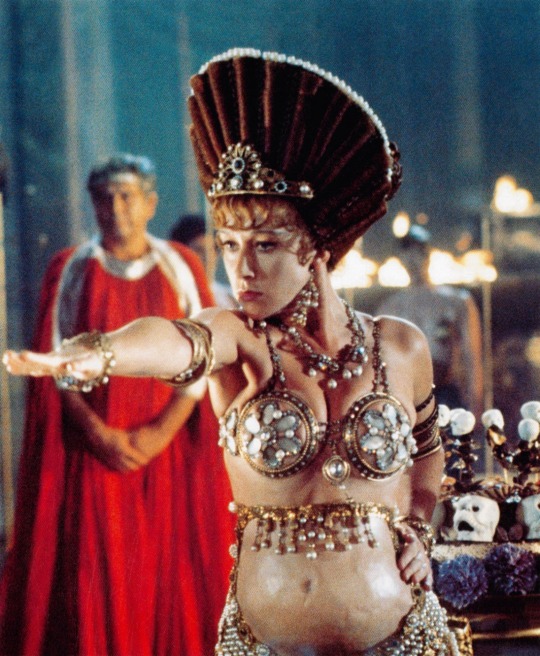
Helen Mirren in Caligula (1979)
716 notes
·
View notes
Text
We gotta talk about Rome, y'all.

So, the flashback in Rome is pretty much exclusively the only time Crowley is actively short with Aziraphale and it has always sort of itched my brain as to why. When I finally got my hands on the script book it started to make sense:


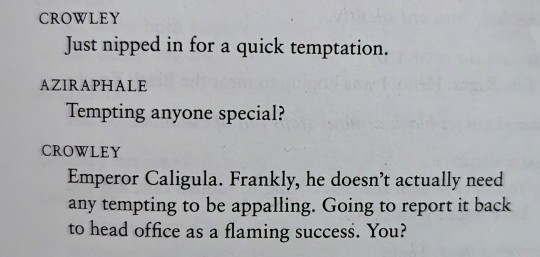
For the uninitiated, Caligula was a Roman Emperor so despicable that there's literally a wiki dedicated to his atrocities.
Some of the deplorable things he was said to have done include, but aren't limited to:
Ordering criminals to be fed to the wild animals used for Gladitorial entertainment, after having cut their tongues out
Decapitating and butchering several people
Beating a priest to death with a mallet
Crucifying, burning, and suffocating multiple people
Literally having a Senator he disliked ripped apart by a mob
With this in mind, we know that Crowley, despite his indifferent attitude toward his demonic assignments, actively works against hurting people and animals, and even though his dialogue implies that he never tempted Caligula, we don't actually know what he might have witnessed. Still, it's not at all out of the realm of possibility that he saw things that could have straight up left him scarred psychologically.
Though the filmed scene leaves this portion of the conversation out, including his failed rebuff of Aziraphale's company, it's clear that he's in some emotional distress. With this in mind, Aziraphale's appearance may have occurred at just the right time. If he saw even just a hint of the monstrosity and madness of Caligula, he'd have needed some sort of comfort, so Aziraphale's stupid question and temptation for oysters may have been the best thing that could have happened under the circumstance.
Plus, given Aziraphale's ignorance about Caligula (he was there for Nero,) he'd have no idea how badly Crowley was messed up. He never reacted to Crowley's irritation or boorish attitude with anything other than continued enthusiasm for his presence. Demonhood has likely been incredibly tragic and traumatizing for Crowley at times, and, in this scene, Aziraphale was a balm for that pain without ever knowing.



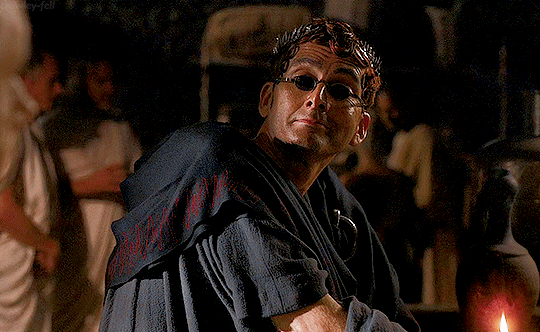
#good omens#aziraphale#crowley#ineffable husbands#good omens 2#aziracrow#aziraphale x crowley#crowley good omens#good omens rome#good omens 41#crowley trauma#caligula#roman history#crowley rome#good omens meta#abel talks meta#good omens theory
733 notes
·
View notes
Text





Misty:


#yellowjackets#yellowjackets s2#yellowjackets spoilers#misty quigley#lottie yellowjackets#lottie matthews#misty yellowjackets#shauna shipman#shauna yellowjackets#taivan#taissa turner#tai yellowjackets#van palmer#van yellowjackets#caligula#what a show#yellowjackets meme
1K notes
·
View notes
Text
Times Caligula was probably fucking with people
I have a pet theory that at least some of Caligula's "madness" was really him being a huge troll and screwing with people, and that several incidents the ancient historians take seriously were shitty jokes taken out of context. From Suetonius, Gaius:
Wandering into emperor Tiberius' bedroom at night with a dagger, thinking, "Eh..." and wandering back out. (12)
Chucking money into crowds to make people scramble for it. (18, 26)
Telling people "I'm gonna fuck the moon." (22)
Getting into arguments with a statue of Jupiter. (22)
Constantly pranking his uncle Claudius. (23)
[Caligula's daughter violently attacks her playmates] Caligula: "Yep, she's definitely mine." (25)
Promising an exciting gladiator show and then swapping in old shitty fighters at the last second. (26)
Reminding people "I could kill you whenever I like." (29, 32)
Grumbling about how the empire was too peaceful and there was nothing heroic left for him to do. (31)
"Everyone reads Homer. I should ban him and see what happens." (34)
Leading an army to the coast, making them gather seashells as "spoils of war," then telling them "Treat yourselves!" on the tiny monetary bonus he awarded them. (46)
Practicing goofy faces in his mirror to freak people out. (50)
Invites three terrified senators to the palace in the dead of night. Jumps out from behind a curtain and does a song and dance number in drag. Refuses to explain. Leaves. (54)
Does not actually make his horse consul, but pampers it so much people said he wanted to. (55)
Taunts the praetorian guards with so many "sissy" jokes they get fed up and shank him. (56, 58)
When people heard he was dead they thought he was pulling a stunt. (60)
#i left out the really dark/gory stuff. reader beware if you look these up!#also take everything suetonius says with a truckload of salt. many of these stories are probably false#still funny tho#suetonius#caligula#jlrrt reads#jlrrt essays#the twelve caesars is a comedy
349 notes
·
View notes
Text






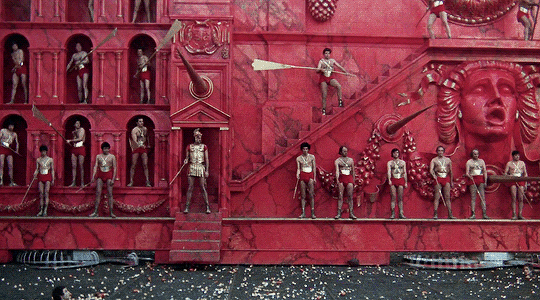
Caligula (1979) | dir. Tinto Brass
#caligula#caligula 1979#perioddramaedit#filmedit#filmgifs#guido mannari#malcolm mcdowell#ancient rome#*
544 notes
·
View notes
Text
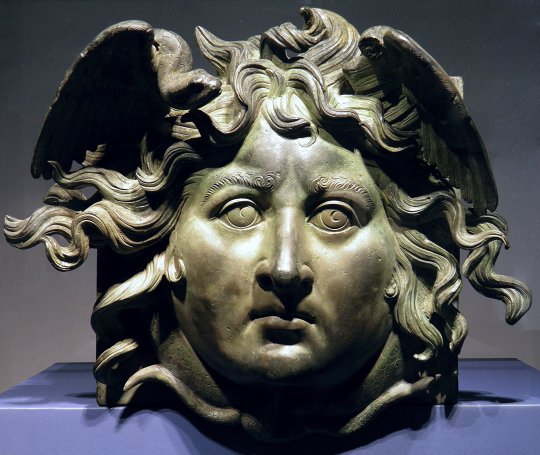

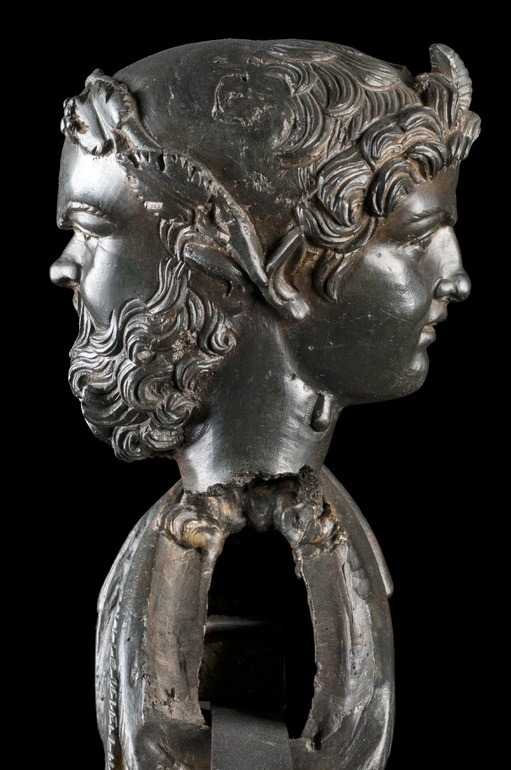
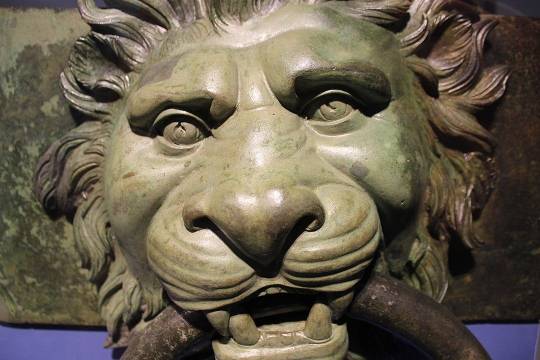

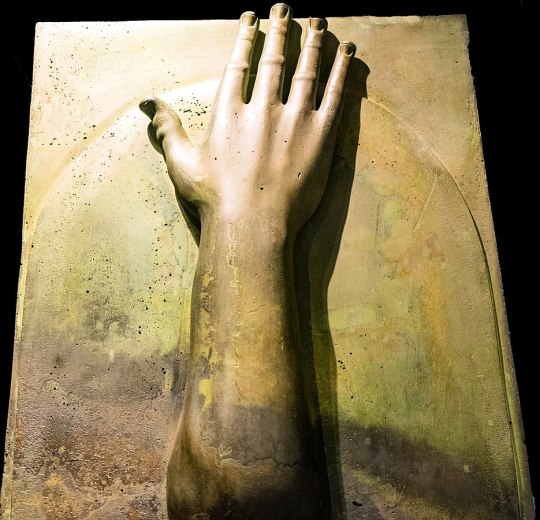
These bronze decorations are part of what remains from the Nemi ships, pleasure barges of Emperor Caligula. The sunken ships were recovered in 1929 but were destroyed in 1944 during WWII.
#ancient rome#roman empire#ancient art#ancient culture#ancient history#julio claudian dynasty#emperor gaius#caligula#emperor caligula#bronze#nemi ships
273 notes
·
View notes
Audio
HOW DO I BREAK YOU BEFORE YOU BREAK ME
179 notes
·
View notes
Text
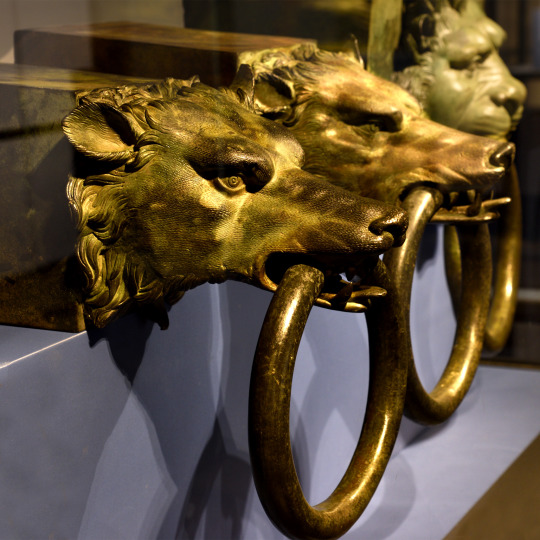
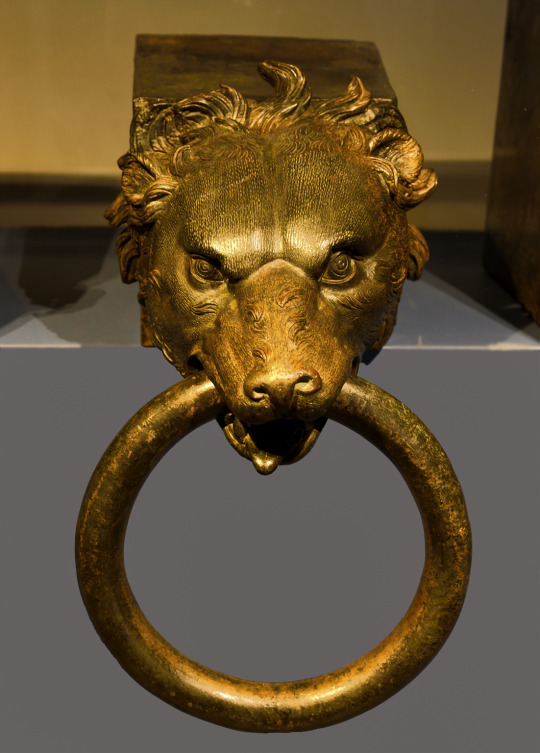
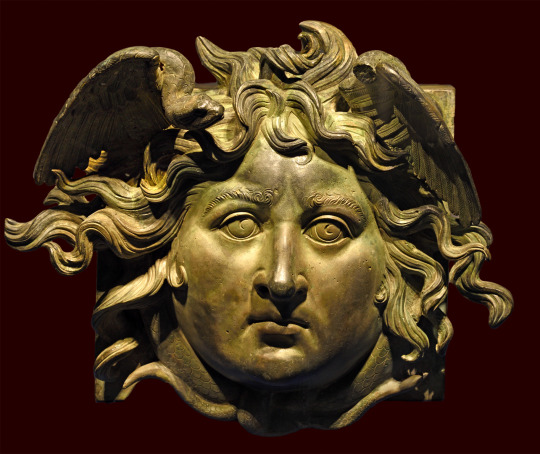
~ Head of Medusa; Head of a wolf.
(Decorative cover of an end of cantilevered beam of a ship)
Period: Reign of Caligula (A. D. 37-41).
Provinience: , Roman National Museum, Palazzo Massimo alle Terme (Roma, Museo nazionale romano, Palazzo Massimo alle Terme).
Medium: Brass
#ancient#ancient art#history#museum#archeology#ancient sculpture#ancient history#archaeology#1st century#medusa#head of medusa#wolf#head of a wolf#caligula#a.d. 1st century
1K notes
·
View notes
Text
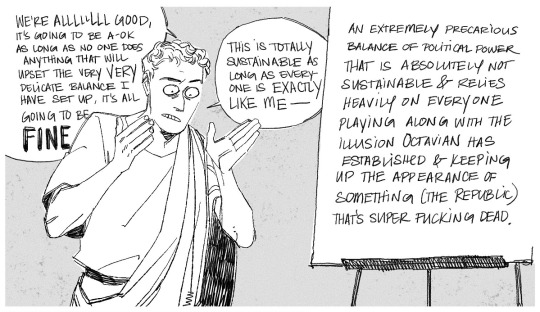
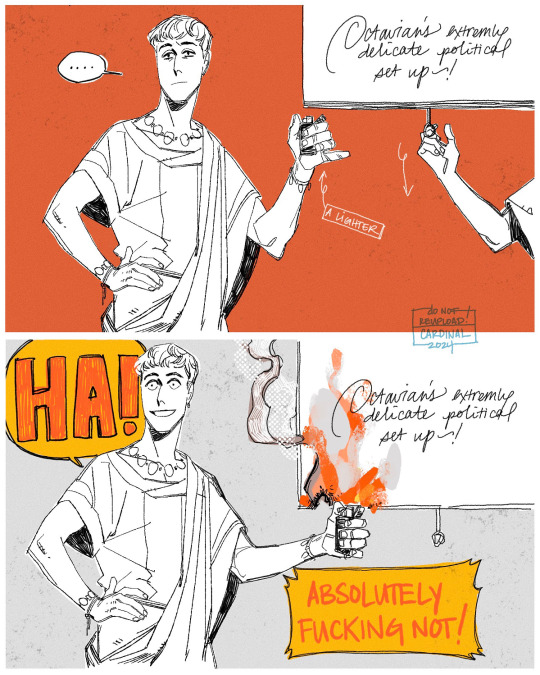
komik re draw since caligula has evolved to have his own look. in theory.
it's extremely easy to take a sledgehammer to a construct when the house of cards in question is built precariously on a corpse (the republic) that everyone's been keeping around in the house as it decays
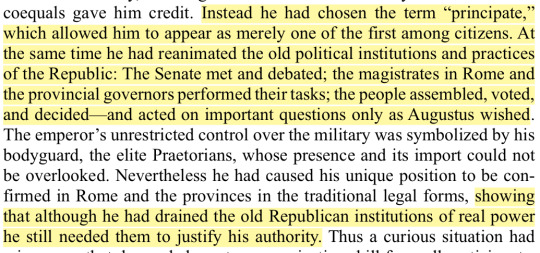



caligula, aloys winterling



the emperor gaius caligula and his hellenistic aspirations, geoff w. adams
⭐ I have a tip jar (ko-fi)!
⭐ and other places I’m at! bsky / pixiv / pillowfort /cohost / cara.app
273 notes
·
View notes
Text
The single funniest thing I learned when studying the Roman Empire is the fact that in his life and centuries after his death, everyone calls Gaius Julius Caesar Augustus Germanicus…Caligula.
Like. That’s the nickname his dad’s coworkers gave him when he was a literal toddler. It means “little boots” because again, baby in an army camp. And that may as well have been his actual name for how often people called him it.
It’s like being called “King Slugger” for all time.
182 notes
·
View notes
Text




↳ family trees + Julio-Claudian dynasty (limited to the main figures)
requested by anonymous
#this took forever#name a more complicated family tree than them#augustus#livia drusilla#octavia minor#julia the elder#tiberius#drusus the elder#antonia minor#agrippina the elder#germanicus#claudius#caligula#agrippina the younger#nero#ancient rome#julio-claudian dynasty#ancient history#familytrees*#creations*#requested*#my gifs#historyedit
331 notes
·
View notes
Text

Augustus:
Augustus has also been taken to task for allegedly crying out, when he heard that his fleets were sunk, ‘I will win this war, whatever Neptune may do!’, and for removing the god’s image from the sacred procession at the next celebration of games in the Circus. (Suetonius, Augustus, 16)
Caligula:
In the end, he drew up his army in battle array on the shore of the Ocean and moved the siege engines into position as though he intended to bring the campaign to a close. No one had the least notion what was in his mind, when suddenly he gave the order ‘Gather seashells!’ He referred to the shells as ‘plunder from the sea, due to the Capitol and to the Palatine.’ (Suetonius, Gaius, 46)
Xerxes I:
When Xerxes heard of this, he was very angry and commanded that the Hellespont be whipped with three hundred lashes, and a pair of fetters be thrown into the sea. I have even heard that he sent branders with them to brand the Hellespont. He commanded them while they whipped to utter words outlandish and presumptuous, “Bitter water, our master thus punishes you, because you did him wrong though he had done you none. Xerxes the king will pass over you, whether you want it or not; in accordance with justice no one offers you sacrifice, for you are a turbid and briny river.” He commanded that the sea receive these punishments and that the overseers of the bridge over the Hellespont be beheaded. (Herodotus, Histories, 7.35)
#just emperor things#just roman memes#octavian#caligula#xerxes i#it's entirely possible caligula was screwing with people but augustus was a genuine believer. and genuine blasphemer#my edits#jlrrt speaks
148 notes
·
View notes
Text


Who else remembers that one post talking about the sexual tension between Apollo and Caligula?
cause i gotta say. Commodus would be jealous.
#back on my bullshit hehe#apollo#the trials of apollo#caligula#commodus#toa caligula#toa commodus#pjo caligula#pjo commodus#pjo apollo#toa apollo#trials of apollo#toa
289 notes
·
View notes
Text
I've been thinking about how to articulate a thought I had about a possible Doylist/non-diegetic reading(EDIT: I originally wrote "Watsonian" here, which is the opposite of what I meant X| X| Brain, you Tricksome Jester *shakes entirely metaphorical fist*) of Eridan's Trollian handle, caligulasAquarium, in response to a post of @mmmmalo's, and I think I've got it.
Ok So: the popular perception of Caligula is as a "Mad Emperor". One of the points used in this depiction is his "War on the Sea", which is taken as obvsl absurd and empty and irrational(and possibly hubristic). Eridan chooses to call himself "caligulasAquarium" and he lives in a wrecked ship(a feature commonly put in aquariums)... on the surface.
So like: maybe the title is meant to be taken by the audience as ironic. Eridan's claim to an "Aquarium" is as absurd and empty and irrational as Caligula's claim to have warred upon the sea(in the common understanding of those events; as a matter of history this seems to be a Telephone distortion, from the sources I can find).
A few more points that have occurred to me since I started writing this:
Caligula "Made War on the Sea"; Eridan wants to "Make War on the Surface" by Killing All Landwellers, carrying forward the themes of inversion btwn Alternia and Earth.
Also: "Kill All Landwellers", "Kill All Humans": he's lampshading common evil-alien-overlord tropes
...Which in itself is sort of dunking on HIM, since Eridan is nobody's overlord he's just some GUY. Like: Yes, he's "Nobility" due to blood-caste, but he has no influence, no power, no RESPECT from anyone we meet, no friendships let alone alliances with other socially powerful individuals(other than Feferi, who seems to have foresworn all that to monastically care for G'lybgolyb) that he could USE to have influence; he's just a loner with his grand-dad's gun and allot of pretension.
...which you could argue furthers his parody of USian internet white-supremacists? Like: He is THEM: a gun-humping loner who only feels comfortable talking to the people he claims to hate, with no idea how unpleasant he makes himself to interact with, and even less interest in introspection or self-awareness, fetishizing past genocides as a way to claim for himself a "Glorious Past" he had nothing to do with.
As Feferi(and possibly other characters I'm forgetting) point out, Eridan's ambition to Kill All Landwellers is more than a little absurd. He's never really DONE anything to plan or prepare for it, and aside from Fef he exclusively hangs out with and befriends Landwellers, as well as LIVING ON LAND(well: a sandbar or reef). This could be taken as furthering the Caligula "War on the Sea" parallel.
Expanding on the last: Caligula, THE EMPEROR OF ROME and Grandest of Nepo-babies, was rather notably disdainful of and hostile towards the Roman nobility and inherited wealth/rank. This connects to Eridan in two ways I can think of: 1) his avoidance of other seadwellers, and 2) his philosophical hostility to landdwellers while Being, in practice, A Landweller. Basically: both Hate things about themselves shared by others.
Reinforcing #3: the choice of Caligula, a Troll-Emperor. Again: Eridan is Just Some Guy; he does not command armies, he does not command society, he can't even command Equius, who GETS OFF ON being ordered around. This is Pretension.
...which, I guess, you could connect AGAIN back to Caligula via the popular memory of him wanting to be treated "As A God", but it should be noted that 1)everyone who wrote anything about him hated the guy and was explicitly dunking on him, so we don't know how accurate these charges are, and 2)in the Roman context, while legal apotheosis was reserved for after death, imperial Divinity was already de facto given that sacrifices and prayers to the Emperor's health and success were legally mandated civic religious duties, AND 3)that classical Greeks and Romans, contra the Abrahimic societies which would later create this popular memory, considered apotheosis a real possibility for notable individuals.
#Homestuck#Eridan Ampora#caligulasAquarium#Irony#zA Analysis#Homestuck Analysis#History#Gaius Caesar Augustus Germanicus#Caligula#Historiography#zA Writes#Our Staff#zA's Endemic Historicality#Watsonian vs Doylist#My Traitorous Brain#zA Corrections
116 notes
·
View notes